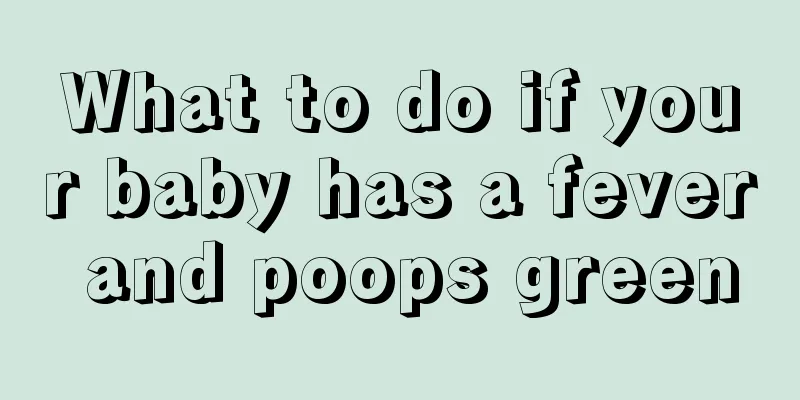Baby hearing development time

|
The baby's physical development, including the development of various body functions, is a slowly improving process. The baby's hearing development time is different at different stages. If you simply judge based on certain symptoms, the reliability is not very high. In this case, you need to refer to some indicators so that you can accurately understand the child's situation. So, what is the time period for a baby's hearing development? Let's take a look below.
1 month: The baby already has hearing. Most babies can respond to 1-2 auditory stimulation within 24 hours after birth, and are also very sensitive to the voices of adults. After a week, his hearing is fully developed and he will pay close attention to human voices and will also be sensitive to noise. Talk next to your baby and he or she will turn his or her head towards familiar voices and words. 2 months: The baby is very sensitive to sounds and will react differently to familiar or unfamiliar sounds. Adults can talk softly to the baby, or play some soft music, making sounds in different directions of the baby, and the baby will turn his head towards the source of the sound. 3-4 months: Can distinguish adults’ voices and will be happy to hear mom’s voice. Tell stories to your baby with emotion. The gentle and pleasant voice will cause your baby to smile, shake his hands and feet, and other positive reactions. At 4 months old, babies can distinguish different timbres and differentiate between male and female voices. They are very sensitive to the emotions expressed in language and can show different reactions. 5-6 months: They are curious about all kinds of new sounds, can locate the source of sound, and can respond with babbling when they hear sounds and react to changes in volume.7-8 months: Listen to the sounds made by oneself and others, and establish connections between the sounds and the content of the sounds. At 8 months old, babies can roughly distinguish between friendly and angry voices, and can imitate human activities through vision and hearing. 9 months: Able to distinguish between high and low notes. For example, when playing xylophone with your baby, the baby will sometimes hit the high notes and sometimes the low notes. 10-12 months: The baby's sound localization ability is well developed. He has clear positioning movements and can actively turn his head toward the sound source, which means he has the ability to distinguish the direction of sound. 2 years old: Can run in circles and swing on the swing; can use pronouns such as "you" and "I", and can connect 2-3 words into a sentence. 3 years old: Able to play ball games and other sports - able to use plural nouns, understand simple questions and answers, and recite nursery rhymes relatively fluently.4-5 years old: Can participate in general sports activities; can use attributes, adjectives, adverbs, etc., can define objects around them, and has a considerable vocabulary for the names of various objects (food, supplies, etc.), animals, and plants; can sing and tell simple fairy tales; can explain the actions in the paintings and ask questions about the meaning of words. 6 years old: Able to participate in various sports activities - basically able to use relatively complete sentences and complete 5-7 sentences with complete grammar, and can speak fluently. After 6 years old: Entering school age, children can basically participate in various more intense sports activities. As their age and knowledge continue to grow, their verbal expression becomes increasingly rich and colorful. |
<<: Baby's gross motor development and IQ
>>: What to do if your baby's intellectual development is slow
Recommend
Can children use air conditioning when they have a high fever?
In the hot summer, people always turn on the air ...
What are the dangers of excessive foreskin in children?
Phimosis is a common disease among underage males...
Causes of fever and convulsions in young children
Young children are often prone to symptoms of col...
Blisters on baby's body
The skin of infants and young children is very fr...
The child has a fever but no other symptoms
Fever is a common symptom in daily life for many ...
What should I do if my child has tonsil suppuration and high fever?
For children, tonsillitis is very likely to occur...
Can children with body odor undergo surgery? Medical experts will answer your questions
There are now mature scientific treatments for ch...
How to control childhood obesity
Everyone knows that although chubby children look...
What causes roseola in infantile eczema?
Once you contract roseola infantum, the disease p...
Sour and smelly stool in children
The normal frequency of bowel movements is once a...
Why do six-month-old babies sweat so much?
Several of my neighbors’ babies are already 6 mon...
Causes, manifestations and treatments for red and swollen gums in babies
I remember that I used to like the song "Kis...
Causes of black tongue coating in children
The color of the tongue coating is generally whit...
What foods are good for children with calcium deficiency?
We know that calcium is a very common chemical su...
What are the symptoms of precocious puberty?
When the disease of precocious puberty occurs, yo...









